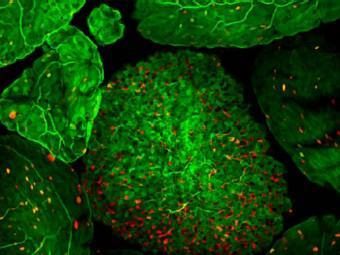Medical expert of the article
New publications
Scientists on the verge of creating oral vaccines for gut diseases
Last reviewed: 01.07.2025

All iLive content is medically reviewed or fact checked to ensure as much factual accuracy as possible.
We have strict sourcing guidelines and only link to reputable media sites, academic research institutions and, whenever possible, medically peer reviewed studies. Note that the numbers in parentheses ([1], [2], etc.) are clickable links to these studies.
If you feel that any of our content is inaccurate, out-of-date, or otherwise questionable, please select it and press Ctrl + Enter.
As a result of joint work, Japanese and American scientists have discovered a gene that is responsible for the differentiation of unstudied intestinal cells - M-cells. Studying the development of these cells may help in creating an oral vaccine. The results of the work of scientists from Emory University (USA) and the Research Center for Allergy and Immunology (Japan) are published in the journal Nature Immunology.
M cells are epithelial cells located in clusters of lymphoid nodules in the intestine (Peyer's patches). M cells capture bacteria from the intestinal lumen and then "pass" them on to lymphocytes and macrophages. They are viable only in Peyer's patches and are therefore little studied.
The team of scientists managed to establish that the Spi-B gene is responsible for the differentiation of M-cells. The protein encoded by this gene belongs to transcription factors - a family of proteins that control the process of mRNA synthesis on the DNA matrix. It is produced in immune cells and is important for various physiological processes, including division, differentiation, development and programmed cell death (apoptosis).

The researchers found that Spi-B expression coincides with the onset of early M-cell differentiation. To determine whether this gene regulates M-cell development, the scientists conducted experiments on model mice that lacked the Spi-B gene. During the course of their work, they found that there were no functioning M-cells in the intestines of these rodents. After a bone marrow transplant, the function of the M-cells in the model animals was not restored. This meant that the Spi-B gene must be expressed in epithelial cells for M-cell development.
"We were very surprised to find that Spi-B is expressed in intestinal epithelial cells. Since this gene is known to be important in the development of several types of immune cells, it was previously thought that it was expressed only in them," said one of the authors of the work.
According to the scientists, information about M cells - in particular, what molecules are present on their surface - can be used to create oral vaccines against bowel diseases. Most existing vaccines are given by injection, but in some cases it is better to deliver the vaccines orally - this way it is possible to strengthen the body's "defenses" at the site where the disease began. Also, studying M cells can provide information about the development and treatment of a number of bowel diseases.


 [
[